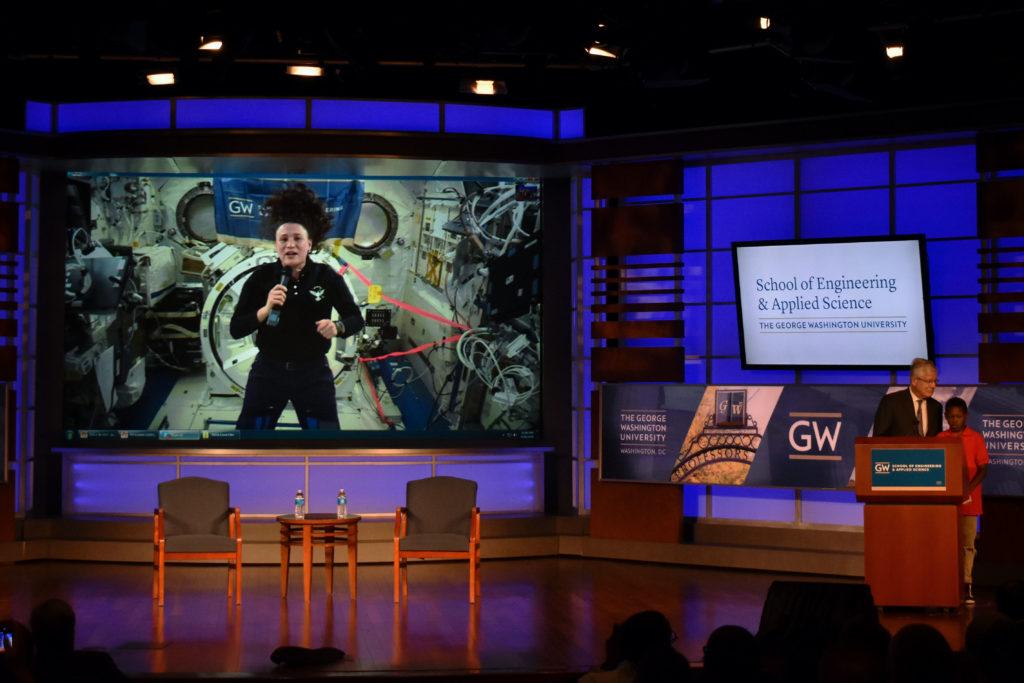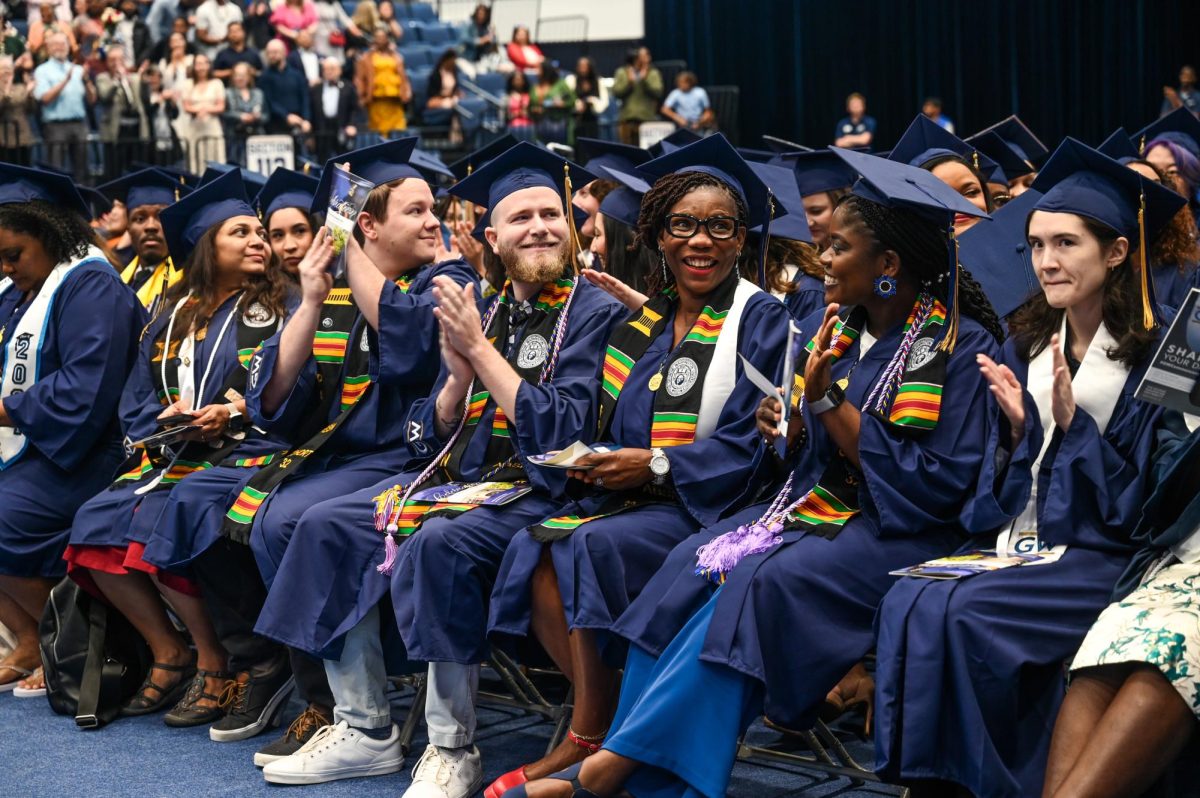An alumna aboard the International Space Station was live-streamed into Jack Morton Auditorium Tuesday to answer students’ questions about deep space exploration.
Serena Auñón-Chancellor, who graduated from the School of Engineering and Applied Sciences in 1997, spoke at the event through a NASA downlink from space to the Media and Public Affairs Building. Auñón-Chancellor, currently located about 200 miles above Earth’s surface, is one of six crew members on NASA’s Expedition 56/57, which blasted off toward the ISS in June, according to the expedition’s website.
At the event, Auñón-Chancellor talked about the personal challenges astronauts face in space, like the monotony of an astronaut’s daily routine and atmosphere. She said music is one comfort that makes up “a big part of our existence up here.”
“The moment you insert music – and it can be any type of music – it changes the entire mood,” she said.
Auñón-Chancellor said much of her daily routine in space involves exercise to stave off the more severe side effects of experiencing constant zero gravity. She said specialized equipment helps astronauts stay fit.
“One of the biggest things we do up here is exercise two to two and a half hours a day,” she said. “We have a special device called an ARED – the Advanced Resist and Exercise Device – and that device generates force utilizing vacuum tubes, and we can get up to almost about 600 pounds of force.”
Auñón-Chancellor also discussed the sacrifices astronauts make to embark on missions to space. She said of the many challenges, separation from her friends and family for long periods of time is the hardest.
Auñón-Chancellor’s 20-minute discussion was followed by an in-person conversation with Charles Camarda, an alumnus who graduated from SEAS in 1980 and currently serves as the senior adviser for innovation in the Office of the Chief Engineer at Johnson Space Center.
Camarda, who has logged more than 333 hours in space over his career, suggested that before humans begin widespread colonization of Mars, small settlements in space can serve as laboratories to explore how different cultures interact away from Earth.
“As we’re thinking about creating these communities that are going to be very diverse – people from all parts of the Earth – it’ll be like an inter-global kind of community and culture that we would have to start experimenting with before we send people to colonize,” he said.
As the event concluded, Camarda emphasized that space exploration is still relatively new, so humans have much to discover. He said humans shouldn’t fight over space but rather work collaboratively to explore it.
“We should be helping each other out,” he said. “Earth is pretty small in this vast universe – that changes your perspective on how you view this planet.”




